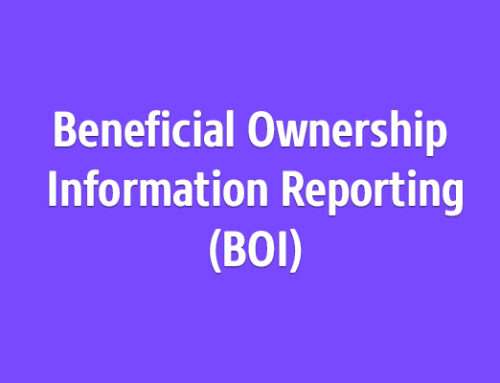For foreign investors seeking to establish a business presence in the United States, the Single Member Limited Liability Company (LLC) serves as an attractive and flexible option. Understanding the tax filing requirements for a foreign-owned Single Member LLC, classified as a disregarded entity by the Internal Revenue Service (IRS), is crucial to ensuring compliance with U.S. tax regulations.
In this article, we outline the essential tax filing obligations for foreign-owned Single Member LLCs.
Definition of a Disregarded Entity
A Single Member LLC is treated as a disregarded entity for tax purposes if it has only one member and is not classified as a corporation. In the case of foreign ownership, the IRS considers the LLC as an entity separate from its owner, yet disregards it for federal tax purposes. This means that the foreign owner reports the LLC’s income and expenses on their individual tax return.
Obtaining an Employer Identification Number (EIN)
While a Single Member LLC with foreign ownership may not have employees or withhold taxes like a traditional employer, it is required to obtain an Employer Identification Number (EIN) from the IRS. The EIN is essential for various tax and banking purposes, including opening a U.S. bank account.
Income Tax Filing
Foreign-owned Single Member LLCs, being disregarded entities, do not file a separate tax return. Instead, the foreign owner includes the LLC’s income and expenses on their individual tax return (Form 1040NR or other applicable form) annually. The income is reported on Schedule C, Profit or Loss from Business.
In addition to this annual tax filing requirement, individuals must not forget the IRS’s call for estimated tax payments throughout the year. Individuals typically should make estimated tax payments quarterly if they expect to owe $1,000 or more.
Form 5472 Filing
Foreign-owned Single Member LLCs are required to file Form 5472, “Information Return of a 25% Foreign-Owned U.S. Corporation or a Foreign Corporation Engaged in a U.S. Trade or Business.” This form collects information on transactions between the LLC and its foreign owner or other foreign-related parties. It must be filed separately from owner’s individual tax return.
This filing requirement is crucial because failure to submit Form 5472 or submitting it with errors may result in a significant penalty imposed by the IRS, with a minimum fine now set at $25,000 USD.
State Tax Filing Requirements
In addition to federal requirements, non-resident owners must be aware of state tax obligations. State tax laws vary, and some may require separate filings or impose specific reporting requirements for non-resident individuals conducting business within their jurisdiction.
Conclusion
Non-resident owners of Single Member LLCs face specific tax obligations, requiring careful attention to compliance. Adhering to IRS requirements, obtaining an EIN, filing Form 5472 accurately, and addressing state-specific obligations are crucial steps. Failure to meet these requirements may lead to substantial penalties. Seeking professional advice and staying informed about tax regulations is the key for ensuring smooth operations and avoiding potential financial consequences.
References;
About Form 5472, Information Return of a 25% Foreign-Owned U.S. Corporation or a Foreign Corporation Engaged in a U.S. Trade or Business
https://www.irs.gov/forms-pubs/about-form-5472
Limited Liability Company (LLC)
https://www.irs.gov/businesses/small-businesses-self-employed/limited-liability-company-llc
About Form 1040-NR, U.S. Nonresident Alien Income Tax Return
https://www.irs.gov/forms-pubs/about-form-1040-nr
Single Member Limited Liability Companies
https://www.irs.gov/businesses/small-businesses-self-employed/single-member-limited-liability-companies
Estimated Taxes
https://www.irs.gov/businesses/small-businesses-self-employed/estimated-taxes
Disclaimer
This article is intended for informational purposes and should not be taken as legal or tax advice. You must consult with your tax, financial or legal adviser about your unique financial situation before acting on anything discussed in this article. TaxBasket LLC is providing informational content for general guidance to help small business owners become more aware of certain issues and topics and this article must never be considered as a substitute for advice provided by your tax, financial or legal advisers. TaxBasket LLC or its members cannot be held liable for any use or misuse of this content.




